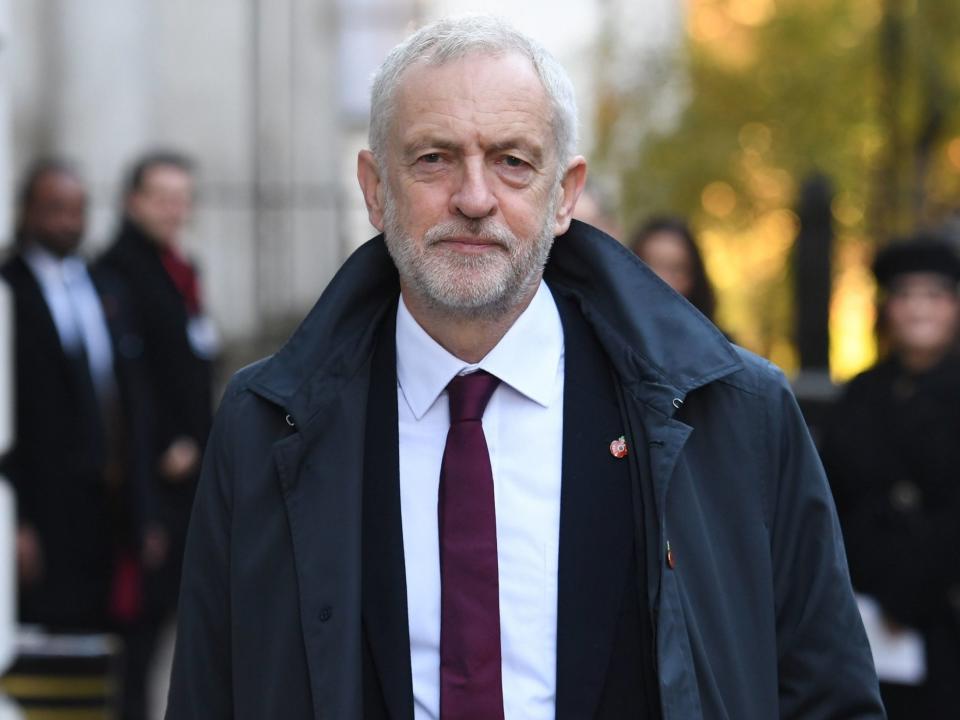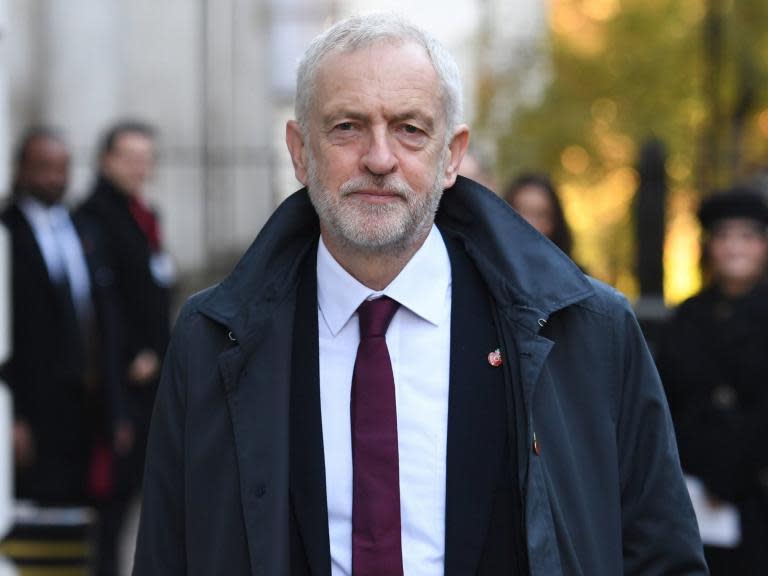Brexit: Jeremy Corbyn says he does not know how he would vote in fresh EU referendum
Jeremy Corbyn has said he does not know how he would vote in a new referendum on the UK’s membership of the European Union.
The Labour leader said he would need to know what the options are in any fresh test of public opinion as he reiterated his opposition to Theresa May’s Brexit agreement.
Mr Corbyn’s words came as Remain-supporting Labour MPs urged the leader to more solidly get behind a plan for a final say referendum, something which he said was an “option for the future”.
Pressed on how he would vote on Sky News’ Sophy Ridge on Sunday programme, Mr Corbyn said he voted to Remain at the 2016 referendum and said there are “reforms needed” in the EU.
“I don’t know how I am going to vote – what the options would be at that time,” he said.
As the Conservatives continued to row over Ms May’s draft Brexit plan today, Mr Corbyn said he had not read “every last word” of the draft deal, but had seen “summaries”.
Referring to the prime minister’s deal, he said it was a “one-way agreement” in which the EU “calls all the shots”.
He added: “We’ll vote against the deal because it doesn’t meet our six tests. We don’t believe it serves the interests of this country, therefore the government will have to go back to the EU and renegotiate rapidly.
“There’s 500 pages in this document, much of which is quite vague: where’s the guarantee on environmental protections, where’s the guarantee on consumer protections, where’s the guarantee on workers’ rights?”
Mr Corbyn’s remarks follow his admission in an interview with Der Spiegel last week that “we can’t stop it” – in reference to the UK’s departure from the EU.
“The referendum took place,” he said. “Article 50 has been triggered. What we can do is recognise the reasons why people voted Leave.”
It led to Sir Keir Starmer, the shadow Brexit secretary, attempting to clarify confusion over the party’s policy, claiming “Brexit can be stopped”.
On Sunday two opinion polls showed the Conservatives’ election fortunes had been dented, with Ms May’s party now trailing behind Labour.

 Yahoo News
Yahoo News 

